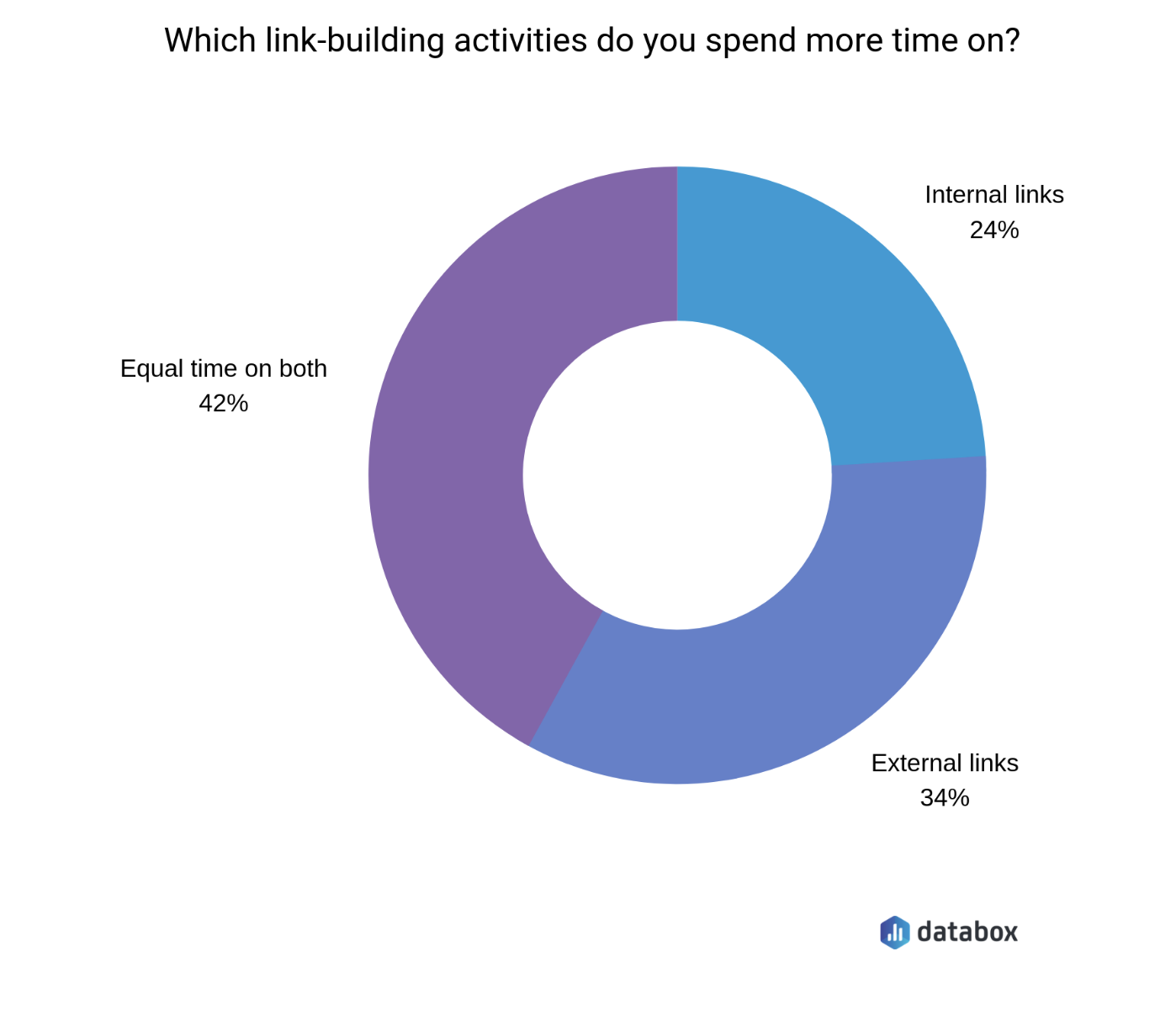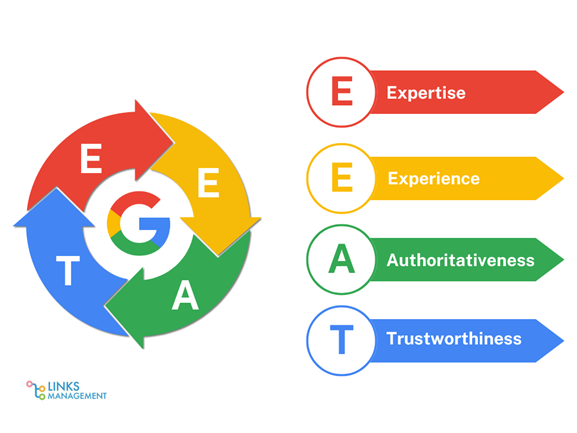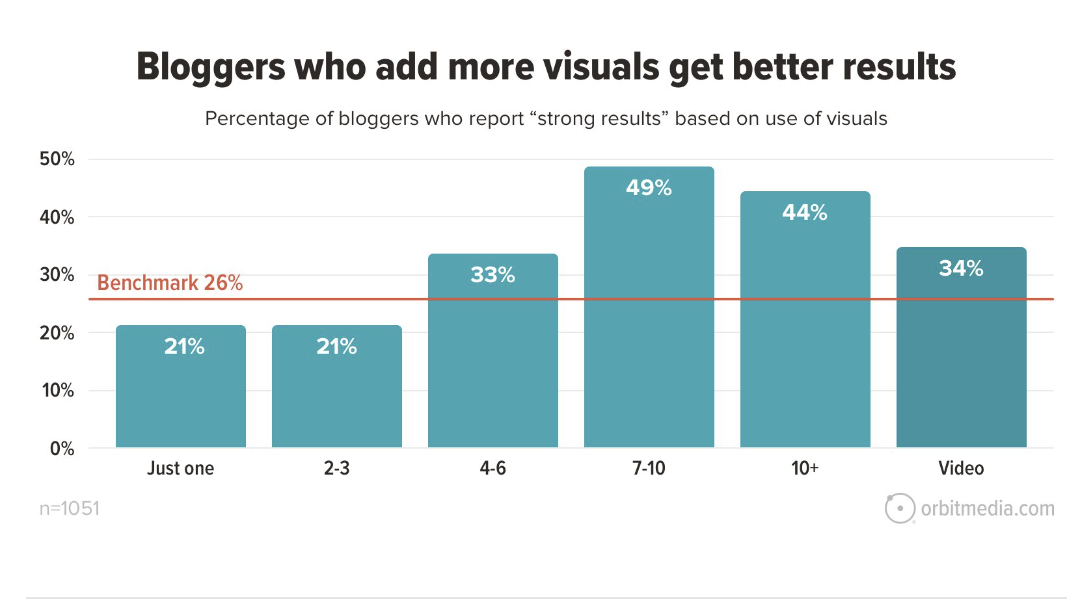Link Equity: What Is It and How to Use It?
Many backlinks are useful but some are just more valuable than others. Long story short – the higher the quality of a link, the more value it has. These are the fundamentals of link-building as such.

But what is responsible for this backlink quality? And how does it influence your website’s rankings and authority?
These are the answers covered behind two words – link equity.
It might sound like professional SEO jargon, but it is easier to comprehend than you might think.
And when you do understand the concept, you will end up knowing how backlinks work. As a result, you will build better links that pass more backlink equity to your site.
What Is Link Equity and Why Is It Important for SEO?
Link equity (or what some prefer to call link juice) is basically the amount of value and authority passed from one web page to another through backlinks.
Imagine you get a backlink from Forbes or CNN and another one from a new blog with about 25 visitors monthly so far. Which of these do you think will pass a higher level of value to your site? Obviously, the first one.
This means that the first two websites have more backlink equity than the latter. But what makes this important for SEO?
Basically, link equity is one of the major factors that impact your PageRank (aka domain authority and domain rating) when you’re doing link building.
The more high-authority, trusted websites link to you, the higher your website’s authority will grow. Your website will have more trust factor because, for Google, it will look like other quality pages “trust” you. As a result, you will see:
- Your search rankings getting better.
- Your brand gaining an edge over your competitors.
- More exposure for your website.
- Increase in organic traffic.
- More conversions, which means more sales, revenue, etc. – you get the point.
What Are the Factors That Determine Backlink Equity?
You already have an idea that the DR/DA of the website linking to yours can determine the level of backlink equity your page gets, but that’s not the only factor that plays a role. What is it then? Other factors include:
- The topical relevance of the linking page. A page that is the same niche as yours will pass you more link juice than one that is not relevant at all.
- The PageRank or URL rating of the referring page. Both Google PageRank and URL rating (developed by Ahrefs) show the strength of a website’s backlink profile. So, you want to pay attention to these metrics when choosing your sites for link building.
- Quantity of outbound links on the referring page. Here’s a catch – link equity is shared among all the pages that get a backlink from that page.
- Anchor text relevance. When you get a backlink, the anchor text has to be contextually relevant and look natural (preferably not keyword-based) to ensure that the link will pass on any value to your page.
- Link location. Links that are placed in the body of the content pass on more link juice than those placed in the header. So, it’s important to ensure your links appear in the right location – especially if you are getting that backlink through a guest post.
- The indexability of the referring page. Any page that links to you should be indexed, and your link has to be dofollow (i.e., have no “nofollow” tag) to pass on some of that precious link juice.
For example, a page discussing “types of backlinks” linking to the one you are currently reading will pass on more link juice than a link from a page on the latest shoe designs.
If a page is rated 80, it has more authority and will pass on more value than one ranked 10. Both Google PageRank and URL rating scores also depend on backlinks and their link equity. Basically, they go higher when a page gets more links from quality sites.
If a linking page also links to many other websites, then each gets some link juice. That’s why the number of outbound links is important.
If there are too many (especially compared to the volume of inbound links), then you can waste a lot of link juice. Plus, it signals spam to search engines.
How to Use Link Equity in SEO to Improve Your Domain Authority and Rankings
There are many effective ways to use link equity for SEO to improve your domain authority and rankings. Here are some strategies you can apply:
#1 Be Strategic With Your Internal Links

Source: DataBox
Sometimes people focus on backlinks and throw internal links to the back burner. Not that they do not know it is also important but they are more consumed with finding the highest DR links from other sites.
While this is not a bad move at all, you also want to make sure to clean your site and put everything in order to make the most of those links. Where do you start?
- Arrange your content in a logical content structure. Start by grouping all related content into clusters. You’ll need a special page that serves as a pillar or central hub for all the subtopics. Use internal links to connect them.
- Take advantage of your high-authority pages. Some pages on your site naturally have more authority than others. Link your high-authority pages to other important pages. This way, you can pass some link juice to it. It is especially useful for newer pages that are yet to gain their authority.
- Send more links to your money-maker pages. This won’t only improve your link equity in terms of SEO but will also help you get more visitors on your landing pages, product pages, and other revenue-generating pages.
#2 Diversify Your Backlink Profile
Your backlink profile should not look like a bland plate. Instead, you want it to be colorful and interesting. Get backlinks from many relevant websites with different authority.
But don’t just stop there. It’s better to get links from a variety of domains instead of hundreds of links from one domain. Your backlinks can come from social media platforms, blogs, news sites, and other places where you can.
Plus, remember that all your links should have different anchor texts and be both nofollow and dofollow.

Source: @JoeFisherSEO
The more diverse your backlink profile is, the more credible and natural it looks.
Of course, you can ignore the natural look of your backlink profile, and it will still work for some time. But if you want to bring your website to the top of search results and stay there, diversify, diversify, diversify.
#3 Create High-Quality Content (as Much as You Can)
You need to focus on original, quality content that will have some novelty and value to it. It’s a no-brainer, really.
If your content provides value, people will naturally share and reference it (and send backlinks your way). Even if those links are nofollow, you will still benefit from them (as you know from the previous tip).
But how do you know that your content has what it takes?
Do extensive keyword research and build your content around the topics your audience is really looking for. This will help you align your content with search intent, making it useful and solving your target audience’s pains, challenges, etc.
Google standards require every piece of content to show Experience, Expertise, Authoritativeness, and Trustworthiness (EEAT).
So, don’t just regurgitate what others have said. Instead, share your own experience, unique research, data, insights, and experience. At least try to take a different angle.
- Do extensive keyword research and build your content around the topics your audience is really looking for. This will help you align your content with search intent, making it useful and solving your target audience’s pains, challenges, etc.
- Google standards require every piece of content to show Experience, Expertise, Authoritativeness, and Trustworthiness (EEAT).
- So, don’t just regurgitate what others have said. Instead, share your own experience, unique research, data, insights, and experience. At least try to take a different angle.

- Leverage SEO-optimized visuals in your content. People love images, videos, gifs, and whatever. Remember how frustrating it was when a book had no pictures when you were a kid? That’s what most users feel like when they see your blogs with no (even teeny-tiny) images.
- Keep an eye on your audience’s changing interests and needs. Not sure how to do this? Ask them for some feedback, check your comments, and monitor what content people you target engage with the most.
#4 Use Natural Anchor Texts
If you are going to be doing any sort of link building and content creation, then knowing how to use anchor texts properly is vital. How do you approach this? Make sure that:
- The anchor text must provide contextual clues about the page it is linking to.
- You use less overly-optimized, keyword-rich anchors and a more healthy mix of branded, neutral (aka generic), and non-branded keyword-based anchor texts. But if you really want to, you can add the occasional keyword somewhere near the anchor text.
- The anchor text must make sense and blend in with the rest of the sentence naturally.
Keep in mind that very few sites that link to you naturally will use a keyword-based anchor. So Google will notice this and may penalize you for it. Of course, it won’t happen if you have a couple of links like that. But if it’s a rule, it is no good.
#5 Make Friends With Guest Posting
Guest posting is a tested and proven way to get good link equity from your link-building efforts. That is as long as you are doing it right. What does “right” mean? It is when you do the following:
- Find relevant quality sites within your niche.
- Reach out to them and submit your well-crafted and persuasive pitches.
- Write unique, well-researched, data-based blogs based on your pre-approved topic and guidelines.
- Add quality images and other visuals.

Source: Orbitmedia
Each published guest post means one more backlink to your site that adds to your natural backlink profile. Plus, it can be a good PR/awareness opportunity if you choose a good target website.
Sounds perfect, right? But the truth is not everyone has the time to do it on their own despite how powerful this tactic is.
Many SEO specialists and marketers choose a shortcut – outsourcing the process and buying backlinks from credible services. You can try this out as well to see if it works for you.

Source: @SEO_SaaS_Marc on X
#6 Avoid Spammy Link-Building Tactics
Despite the many benefits, it still doesn’t make any sense to rely only on guest posting. Instead, it’s better to try out as many link-building techniques as you can. Think about creating downloadables (e.g., templates, infographics), partnering with influencers, and maybe getting listed in directories.
But hold on, just a friendly word of caution now – while chasing the variety, make sure you avoid spammy tactics like:
- Buying links from PBNs
- Keyword stuffing
- Content cloaking
- Spamming comment sections of forums, etc.
These tactics scream desperation and sooner or later, will trigger a manual action from Google. They can also damage your credibility and lead to lower trust from your customers.
#7 Don’t Let Brand Mentions From Quality Sources Slip By
Are you lucky enough to get mentioned in other blogs and news resources? Then, that’s the kind of opportunity you want to make the most of. So how do you milk this?
Easy. Go to your preferred brand monitoring tool and set it up to alert you of any mentions of your brand. Now what? Once you know that someone has mentioned your brand, that’s when you act.
Reach out to the blog or media (if it’s worth it) and ask them to link to you. How do you know if it’s a good opportunity? This site should have:
- High organic traffic (even better if it’s growing)
- Lots of engagement on their site
- Medium to high DR/DA/TR rating
- Audience with similar interests as yours.
#8 Learn From Your Competition
Another way to get link equity involves you playing the spy. Well, not literally. But you do have to do a little bit of snooping around. What do we mean by that?
Take any SEO tool you like and analyze what your competitors are doing with their link building. Consider it your way of getting some inspiration.
If you want to make it as productive as possible, take an Excel spreadsheet (or any other similar solution) and list all the potential target websites, influencers, media, etc.
If you do this with a couple of your most successful competitors (in terms of SEO), you will have a year-worth of link-building ideas.
Want to dig even deeper? How about taking notes on which content types your competitors are creating to get the most backlinks?
It might be podcasts, short SM videos, infographics, interviews, and so on. See how you can replicate their moves and adopt these into your own strategy.
#9 Remove Toxic Links

Source: @RossHudgens on X
Despite your best efforts and your good intentions, the occasional spammy site is still going to link to you. After all, everyone likes to be connected to something good, right?
The good news is that a few of those won’t really have any impact on your SEO equity. But what happens when there are too many of them?
Well, then, it’s time to pull out the Google Disavow tool and get to work. This is a far easier option than asking each site owner to take them down. Imagine having to write to hundreds of them.
Don’t forget to keep monitoring your site regularly. You can do it even with your Google Search Console (GSC), as it is free and effective for spotting any errors and other issues. This way, you can fix all that before it affects your site.
Conclusion
The link equity you manage to get will depend on lots of factors. Some of them will be outside your control. Still, you have to focus on quality content, collaboration with other blogs, and anything else that guarantees quality dofollow links.
If you have a value-first strategy, you will be able to build a diverse backlink profile. And, at some point, you will improve your authority while winning the trust of the algorithm – leading to higher ranking in SERPs.
Enter URL & See What We Can Do Submit the form to get a detailed report, based on the comprehensive seo analysis.





